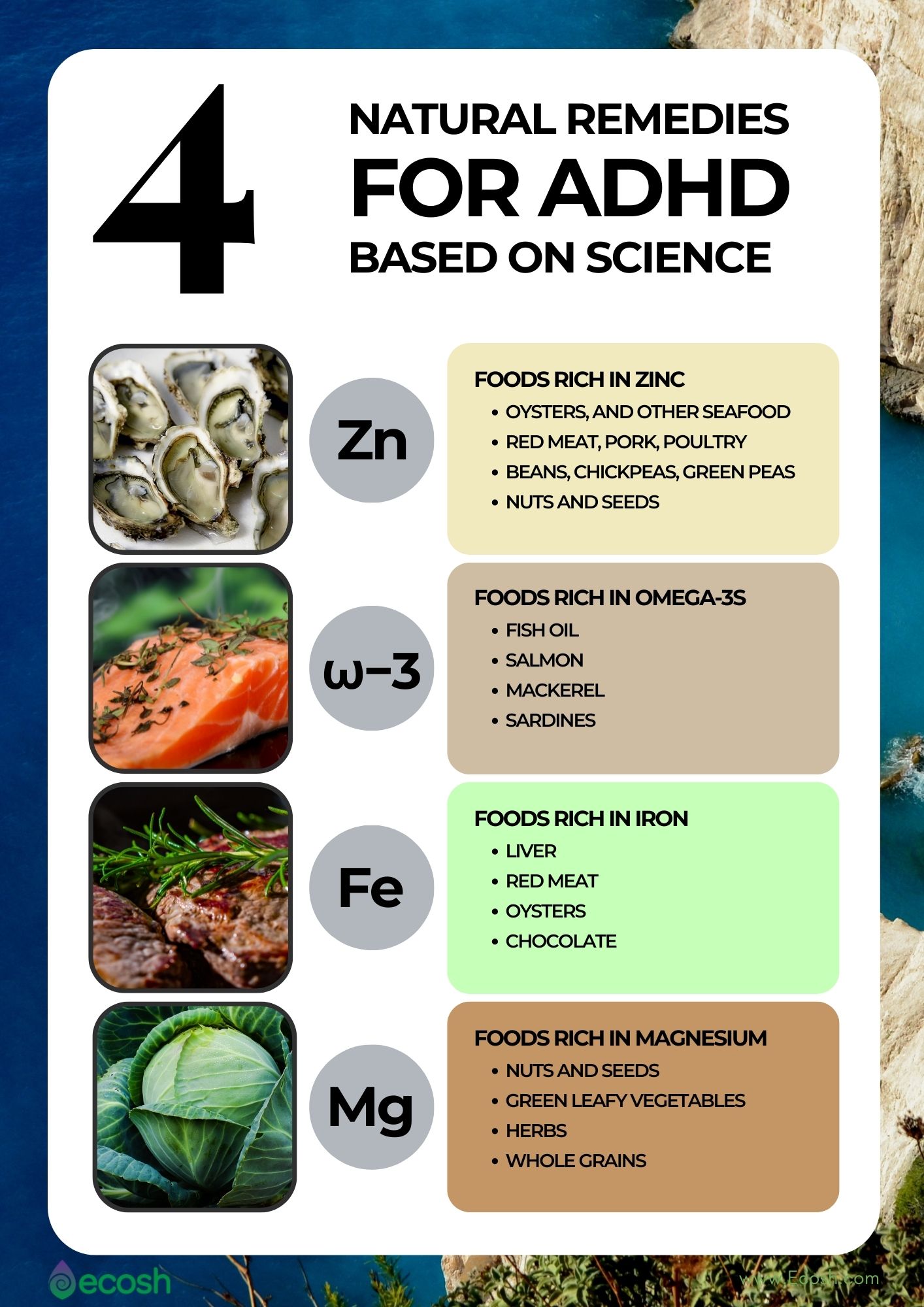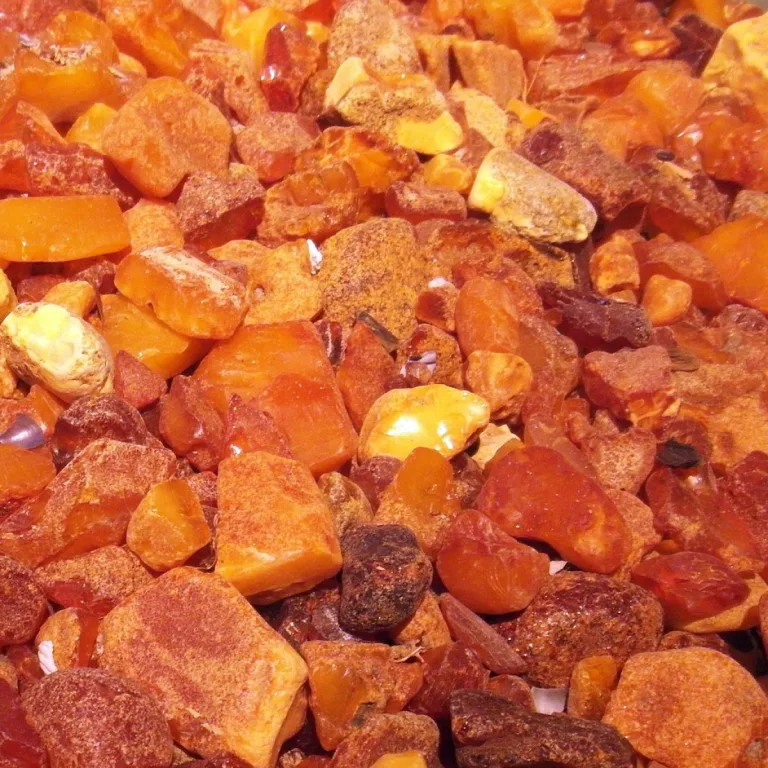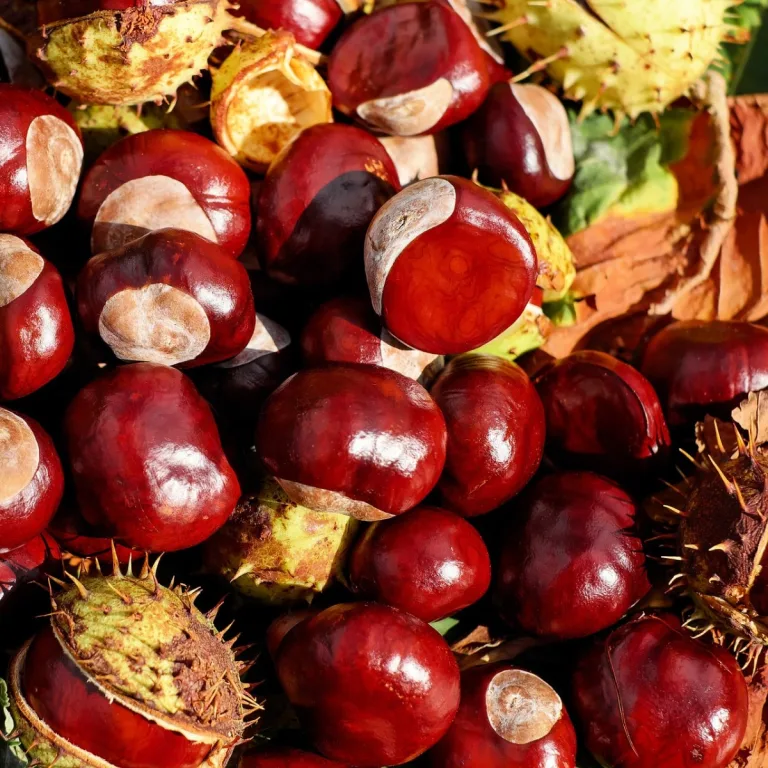The prevalence of attention deficit hyperactivity disorder (ADHD) in children and adolescents is globally on average 5 percent, and among adults, between 2,58 percent (persistent adult ADHD) and 6,76 percent (symptomatic adult ADHD).
This neurodevelopmental disorder is one of the most often diagnosed childhood psychiatric disorders that starts in childhood and may persist into adolescence and adulthood.
The main symptoms of attention deficit hyperactivity disorder include inattention and hyperactivity (impulsivity). Often these symptoms go hand in hand with other neurodevelopmental conditions, such as intellectual disability and an autism spectrum disorder.
Due to the fact that many adolescents and adults with the disorder demonstrate antisocial behavior as well as criminal actions, ADHD has been growingly considered a serious social issue.
The first-line medications in the treatment of ADHD are stimulants. Though adolescents and adults with ADHD have a higher risk of substance abuse, and substance use disorder is one of the most frequent coexisting psychiatric disorders among this group of patients. Other unwanted side effects of taking stimulants may include insomnia, cardiovascular issues, appetite loss, hypoevolutism (retarded development), gastrointestinal problems, and tics.
Here in this article, we discuss ADHD symptoms, causes, and risk factors as well as some natural remedies such as certain supplements for managing ADHD symptoms (14, 15, 16).
Attention Deficit Hyperactivity Disorder (ADHD) Symptoms
ADHD symptoms are classified into two kinds of behavioral issues:
- Attention deficit, or in other words, inattentiveness (difficulty focusing and concentrating). This type of ADHD, which can sometimes be overlooked and undiagnosed as the symptoms may be less apparent – is also called attention deficit disorder (ADD).
- Hyperactivity and impulsiveness.
Numerous people with this condition have symptoms that belong to both these categories, but not all the time. For instance, about 2 to 3 in 10 people with ADHD have difficulties with focusing (attention deficit or ADD), but not with hyperactivity or impulsiveness.
Girls may mostly have signs of attention deficit (ADD) only and they may not express disturbing behavior that makes ADHD symptoms more apparent and obvious.
Therefore, ADHD is more often diagnosed in boys than girls. This also means that girls with ADHD may not all the time be diagnosed.

Attention Deficit Hyperactivity Disorder (ADHD) Symptoms in Children and Teenagers
Mostly, the signs and symptoms of ADHD in children and teenagers are clearly defined and apparent or obvious before the age of 6. These symptoms (both inattentiveness and hyperactivity, or just one of these types of behavior) usually reveal themselves in more than one circumstance, for example, at school, as well as at home.
The Main Symptoms of Inattentiveness (Difficulty Concentrating and Focusing), Also Called Inattentive ADHD (Formally referred to as ADD) Are:
- Short attention span. Children with the disorder usually do not spend a lot of time concentrating on a certain task or activity before becoming distracted, and they can be distracted easily.
- Inability to focus. Even if you address your child directly, and it seems that the child is still struggling to focus, it may be a sign of ADHD.
- Making careless mistakes. All children make mistakes. However, children with ADHD are making mistakes that seem careless and lazy regularly. A Series of mistakes that speak of an inability to double-check work or follow instructions is a frequent symptom of ADHD, which can usually create multiple challenges for a child at school.
- Forgetfulness. Children with ADHD may forget specific steps of a task (for example chores, homework) or where they placed particular objects. That’s why they may often lose things.
- Unfinished tasks, powerlessness to stick to tasks that are time-consuming or boring, or repeatedly changing tasks or activities. Usually, children with ADHD seem to have an interest in a wide range of activities or things. Although having various interests is a good thing, it can also make it hard for a child to finish certain tasks or stick to the task, because their ADHD is causing their focus and mind to wander off toward other things.
Therefore, a child with ADHD usually demonstrates a pattern of failing to finish tasks such as for example homework, chores, hobbies, or games.
- Avoiding challenging tasks. Children with ADHD may sometimes start to cope with their ADHD by first recognizing the hard, demanding, and mentally stressful tasks, and then avoiding them.
- Daydreaming. All children as well as adults occasionally daydream. Particularly if bored or not interested in some activity they are presently doing. However, a pattern of focusing too much on daydreaming and getting lost in thoughts may be a sign of ADHD.
- Seeming to be unable to listen to or carry out instructions.
- Trouble organizing tasks (1, 2, 3).
The Main Symptoms of Hyperactivity and Impulsiveness, Also Called Hyperactive-Impulsive Type ADHD Are:
- Persistent fidgeting (small movements, mostly of the hands and feet) or squirming (wriggle or twist the body from side to side). These are two of the main ways how children with ADHD cope with their nervousness and show their struggle with sitting still.
- Problems being quiet during playing. Continuous fidgeting and squirming during playing or other activities typically also include making noise. For example, humming, mumbling (when inappropriate), bouncing the foot, or tapping a pencil against the desk while playing.
- Inability to concentrate on tasks.
- Excessive talking and physical movement.
- Inability to wait their turn.
- Inability to sit still, particularly in quiet or calm environments. If you notice that your child struggles to sit still in settings where they are supposed to be still, it could be a sign of ADHD.
- Impatience.
- Acting without thinking
- Interrupting conversations
- Little or no sense of danger
- Self-focused behavior and a lack of recognition of other people’s needs.
- Emotional outbursts, temper tantrums, and struggling to keep a lid on their emotions.
- Interruptions. Children with ADHD constantly interrupt their parents, siblings, classmates, and teachers (1, 2).

Attention Deficit Hyperactivity Disorder (ADHD) Symptoms in Adults
Some people with ADHD remain to have serious symptoms that may get in the way of daily functioning as they age, but some adults hardly have any symptoms. Numerous adult people with ADHD don’t know they have it — they just know that completing daily tasks can be more challenging for them than for other people.
ADHD Symptoms In Adults May Involve:
- Difficulties prioritizing.
- Difficulties paying attention and focusing
- Extreme impatience, restlessness and impulsiveness that can range from impatience (for example due to waiting in line or being in a traffic jam) to mood swings and outbursts of anger.
- Disorganization.
- Lack of attention to detail and carelessness.
- Forgetfulness.
- Problems with time management.
- Difficulties focusing on a task that may lead to missed deadlines and unremembered meetings or social plans
- Difficulties following through and completing tasks. Repeatedly beginning with new tasks before finishing old ones.
- Problems multitasking.
- Excessive restlessness or activity.
- Problems with planning and poor organizational skills
- Low frustration tolerance.
- Recurrent mood swings.
- Problems coping with stress.
- Hot temper, irritability and edginess.
- Constantly misplacing or losing things.
- Problems keeping quiet, and talking out of turn (blurting out responses and often interrupting others).
- Problems with dealing with stress.
- Taking risks (2, 3).
ADHD Causes
Although the precise cause of ADHD is not entirely clear, there are factors that may play a role in the development of ADHD:
- Genetics. Studies suggest that genes may play a part in developing ADHD. Therefore, the condition can be hereditary.
- Complications with the central nervous system during development. Issues with the central nervous system at critical stages in development may also have an influence.
- Environment. It is suspected that specific environmental factors (for example exposure to lead as a child) also may increase the likelihood of developing ADHD.
- Brain structure and function. Research has spotted several potential differences in the brains of those with ADHD. Though, the exact significance of these differences is not fully clear.
For instance, some studies that has involved brain scans have proposed that specific areas of the brain may be larger in those with ADHD, while other areas may be smaller (2, 3).
ADHD Risk Factors
Likelihood of having ADHD may grow in case of:
- Having blood relatives with ADHD. For example, having parent or sibling, with ADHD or some other mental health disorder
- Substance misuse during pregnancy. For instance if your mother used drugs, smoked or drank alcohol during pregnancy.
- Environmental toxins. For example, if you were exposed to environmental toxins (like lead that is found mostly in pipes in older buildings and paint) as a child.
- Premature birth. Children who are born prematurely have a higher risk of ADHD.
ADHD Complications
Attention deficit hyperactivity disorder has been associated with:
- Deficient self-image
- Problems with mental and physical health
- Difficulties with school or work performance
- Problems with obeying the law
- Unemployment
- Financial issues
- Substance or alcohol misuse
- Recurrent accidents (for example car accidents)
- Problems with keeping relationships stable
- Suicide attempts (2).
Related Conditions in Children and Teenagers With ADHD
Sometimes, some conditions or problems may accompany with ADHD in children and teenagers, such as:
- Mood disorders, such as depression, bipolar disorder or some other mood disorder.
- Anxiety disorder
- Other psychiatric disorders, such as personality disorders, intermittent explosive disorder and substance use disorders.
- Personality disorders
- Problems with sleep
- Autistic spectrum disorder (ASD)
- Oppositional defiant disorder (ODD)
- Conduct disorder
- Dyspraxia
- Epilepsy
- Tourette’s syndrome
- Difficulties with learning, such as dyslexia (2, 3).

4 Natural Remedies For ADHD – Foods, Vitamins, Minerals And Other Supplements For ADHD
1. Zinc For ADHD Symptoms
Several studies propose that kids with ADHD may have decreased levels of zinc in their body. Therefore, some scientist suspect that there is a link between zinc deficiency and the severity of ADHD symptoms. According to some studies, children who took zinc supplements together with traditional ADHD treatment had an improvement in their symptoms. The only question what needs further investigation is the proper dosage of zinc in case of ADHD.
On the other hand, several other studies have demonstrated that there is a drop in symptoms like hyperactivity and impulsivity after taking zinc supplements, but no notable changes in inattentiveness, which is also one of the key symptoms of ADHD (4, 5, 6, 7).
Before supplementing, it is always better to first consult your doctor and measure the blood zinc levels, but according to S. Newmark it is safe to give your child 20-25 mg of zinc daily (10).
That said, eating more foods rich in zinc every day might be beneficial for children with ADHD, as it might lessen their symptoms.
Foods Rich In Zinc
- Oysters, crab, lobster and other seafood
- Red meat
- Pork
- Poultry
- Dairy products and cheese
- Baked beans
- Chickpeas
- Green peas
- Nuts, almonds and pumpkin seeds
- Whole grains
- Fortified cereals (4)
2. Omega-3 Rich Fish Oil For ADHD
It is noted that kids with ADHD have on average 38 percent lower blood levels of omega-3s than kids without the disorder. Fish oil contains omega-3 fatty acids, and there is quite sufficient evidence that omega-3 rich fish oil fish oil may help improve ADHD symptoms.
For example, children with ADHD who took omega 3 supplements every day for 4 months had less hyperactivity, inattention, disobedience, and hostility. In addition, taking omega-3 supplements improved their memory, spelling and learning.
What’s more, omega-3s may help kids with ADHD sleep better, and therefore be less fatigued during the day. Children who took omega-3s also improved their cooperating skills with others.
To understand more about omega-3 fatty acids such as DHA, EPA and ALA read the article about omega-3 fatty acids and their amazing health benefits (4, 8).
Sandy Newmark, M.D from ADDitude ADHD Medical Review Panel suggests a total dosage of:
- 1,000 mg of EPA plus DHA (add the two together) for smaller children,
- 2,000 mg for adolescents,
- and 1,500 mg for those in between.
Note, that there should be 1.5 to 2 times as much EPA as DHA (10).
Foods High In Omega-3s
- Salmon (3 ounces (oz) or 85 grams (g) of farmed salmon) -DHA: 1.24 g; EPA: 0.59
- Mackerel (3 ounces (oz) or 85 grams (g)) – DHA: 0.59 g; EPA: 0.43 g
- Trout (3 ounces (oz) or 85 grams (g)) – DHA: 0.44 g; EPA: 0.40 g
- Sardines (3 ounces (oz) or 85 grams (g)) – DHA: 0.74 g; EPA: 0.45 g
- Seabass (3 ounces (oz) or 85 grams (g)) – DHA: 0.47 g; EPA: 0.18 g
- Oysters (3 ounces (oz) or 85 grams (g)) – ALA: 0.14 g of; DHA: 0.23 g; EPA: 0.30 g
- Shrimp (3 ounces (oz) or 85 grams (g)) – DHA: 0.12 g; EPA: 0.12 g
- Chia seeds (1 ounce (oz) or 28 grams (g)) – ALA: 5.055 g
- Flaxseeds (1 tablespoon (tbsp)) – ALA: 6.703 g
- Hemp seeds (3 tablespoons (tbsp)) – ALA: 2.605 g
- Walnuts (1 cup) – ALA: 3.346 g
- Soybean oil (1 tablespoon (tbsp)) – ALA: 0.923 g
- Kidney beans (half cup) – ALA: 0,10 g
- Also, cod liver oil, albacore tuna, and herring contain high amounts of omega-3s (8, 9).
3. Iron For ADHD
According to some studies children with the disorder may have low levels of iron. Iron though is vital for normal brain function. Therefore, some believe that supplementing with iron may lessen symptoms of ADHD. Though that hasn’t been proven.
However, as taking too much iron can be toxic (even deadly) it is important to first measure the iron blood levels (hemoglobin, hematocrit and especially ferritin that is usually low in children with the disorder (22 in contrast to 44 in children without the disorder), so consult with your doctor before giving any iron supplements to your child.
S. Newmark suggests supplementing with iron if the ferritin level is less than 30, and first use 30-40 mg of elemental iron a day. Then measure the level of ferritin again in 3 to 6 months (4, 10).
However, your child eats foods high in iron you should monitor that the upper level of safe iron is not exceeded.
Foods Rich In Iron
- Organ meats, especially liver (however, some recommend to avoid liver during pregnancy).
- Red meat.
- Cooked oysters.
- Dark chocolate.
- Nuts.
- Dried fruit (for example, dried apricots and raisins).
- Beans (for example red kidney beans, white beans, edamame beans and chickpeas).
- Lentils.
- Spinach.
- Fortified breakfast cereals.
- Soybeans and soy bean flour (11).
4. Magnesium For ADHD
It is outlined that diet can play a notable role in the etiology of attention hyperactivity disorder, and the lack of magnesium can help to unfold hyperactivity in children. Although magnesium does not have a direct impact on improving attention, it may soothe hyperactivity and agitation, which both jeopardize attention.
Newman says it is safe for the child to take 100-300 mg of elemental magnesium twice a day. The magnesium can be in the form of glycinate, citrate, or chelate. However, he adds that the citrate form may lead to loose stools (10, 12).
Foods Rich In Magnesium
- Seeds and nuts, such as pumpkin seeds, chia seeds, sunflower seeds, sesame seeds, almonds, cashews, peanuts, peanut butter
- Herbs, such as basil, estragon, sage and coriander.
- Algae.
- Whole grains, like quinoa, buckwheat, whole grain or black bread (about 1000g per day), brown rice or whole wheat rice, oatmeal, fortified breakfast cereals
- Leafy vegetables and dark green vegetables, such as nettle, spinach, and zucchini.
- Beans, such as black beans, Edamame, Kidney beans (13).

Other Natural Supplements For ADHD
Ginkgo Biloba
Ginkgo biloba has been used to better functions related to cognition for centuries. Preparations made from this herb may relieve conditions like depression, autism, neuropsychiatric symptoms such as anxiety, as well as influence the cognitive and behavioral aspects of ADHD.
Therefore Ginkgo has been used also in the treatment of ADHD. The primary behavioral effects of Ginkgo biloba are calming, so this herb may improve irritation tolerance in people with the disorder. Ginkgo biloba may also promote willful cognition, attention and lessen irritability.
Although few small studies (one of these done with the combo of American ginseng and Ginkgo leaf) have shown that Ginkgo may be helpful in children with ADHD in improving attention, and ginkgo preparations are used in the treatment of ADHD – no systematic reviews on its safety or efficacy have been published (10, 14).
Therefore, as the evidence of its efficacy is open to more than one interpretation, before taking any preparations, first consult your doctor.
Melatonin
Although this natural hormone does not seem to help with ADHD symptoms, it may help relieve sleep problems in children with the disorder who take certain medications.
GABA
Although low levels of GABA are linked with ADHD, there is too little research on treating the disorder with GABA supplements.
Inositol
Inositol is a substance found in extremely small amounts in many foods. Some believe that in concentrated doses, it may help against agitation and anxiety. However, the efficacy and safety of inositol in the treatment of ADHD has not been proved.
Bacopa and gotu kola
These both belong to Ayurvedic medicine, and have been used in ADHD treatment, but there is still too little research on their efficacy and safety done in western medicine.
St. John’s wort
Despite the fact that St. John’s wort may affect brain chemicals, and is used to treat anxiety, sleep problems, and depression – researchers don’t suggest using it for ADHD treatment, as research has not shown effect on the symptoms of ADHD (4, 10, 14).
NB! The information provided here is for informational purposes only, so do not consider it as health care or medical diagnosis and treatment. Do not consider this information as a guarantee of the results you want to achieve. In addition, this information is not intended to replace the advice of your physician or other healthcare professional.
Even more, you should not use it to diagnose or treat a health problem. Before changing or discontinuing your existing medication, treatment, or care, or taking any dietary supplements, be sure to consult with your healthcare professional or doctor before starting any diet or program, or if you suspect you may have a medical condition.
Written by Maria-Helena Loik
Pictures: Pexels.com, Pixabay.com, Shutterstock.com
Sources:
- 12 Signs That Your Child Might Have ADHD | Family Psychiatry of NJ (familypsychnj.com)
- Adult attention-deficit/hyperactivity disorder (ADHD) – Symptoms and causes – Mayo Clinic
- Attention deficit hyperactivity disorder (ADHD) – Symptoms – NHS (www.nhs.uk)
- Vitamins & Supplements for ADHD: Fish Oil, Melatonin, Zinc, and More (webmd.com)
- Zinc for Attention-Deficit/Hyperactivity Disorder: Placebo-Controlled Double-Blind Pilot Trial Alone and Combined with Amphetamine – PMC (nih.gov)
- [The role of zinc in the treatment of hyperactivity disorder in children] – PubMed (nih.gov)
- Zinc Supplements Could Help Treat ADHD — ScienceDaily
- 15 omega-3-rich foods: Fish and vegetarian sources (medicalnewstoday.com)
- ALA-Content.pdf (nih.gov)
- 10 Supplements and Vitamins for ADHD Symptom Control (additudemag.com)
- Iron – Consumer (nih.gov)
- The effects of magnesium physiological supplementation on hyperactivity in children with attention deficit hyperactivity disorder (ADHD). Positive response to magnesium oral loading test – PubMed (nih.gov)
- Magnesium – Health Professional Fact Sheet (nih.gov)
- Efficacy and safety of ginkgo preparations for attention deficit hyperactivity disorder: a systematic review protocol – PMC (nih.gov)
- The prevalence of adult attention-deficit hyperactivity disorder: A global systematic review and meta-analysis – PMC (nih.gov)
- ADHD in children and young people: prevalence, care pathways, and service provision – PubMed (nih.gov)


